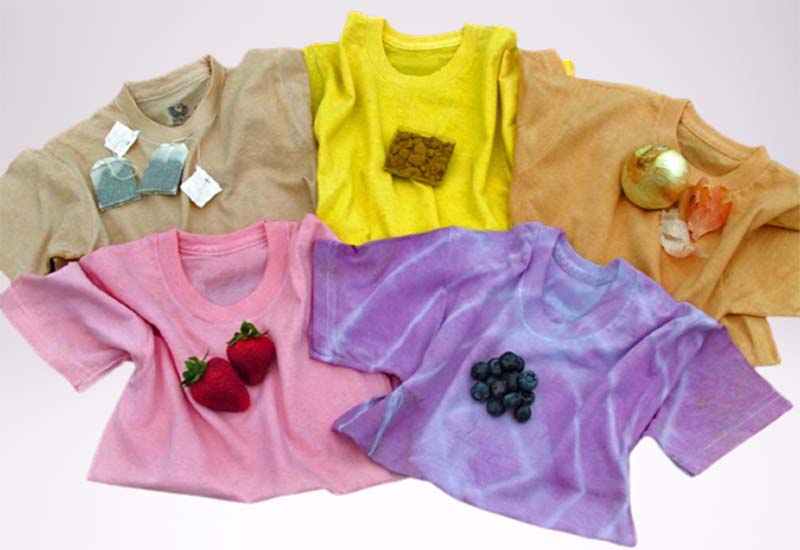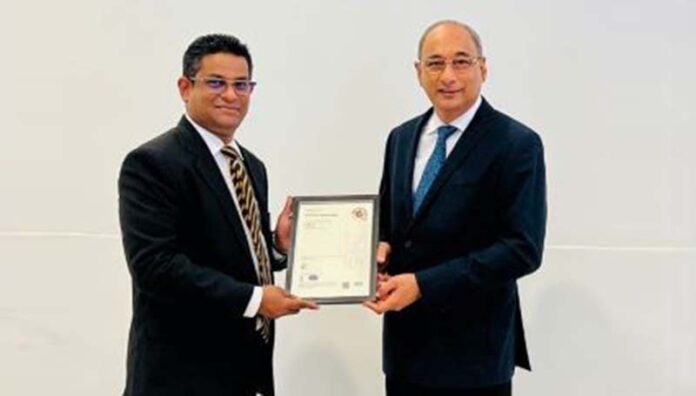Renowned as a trailblazer in the textiles manufacturing industry in Sri Lanka, Hayleys Fabrics PLC incorporates ethical and sustainable practices into every facet of its operations, paving the way for Sri Lanka to be recognized as a responsible manufacturing hub. With an impressive production capacity of 6 million meters of cotton and synthetic fabric per month, the Company offers end-to-end solutions from design to manufacture, solidifying its position as a pioneer in this industry area.


With over 30 years of experience in textile manufacturing, the journey of Hayleys Fabrics is marked by numerous firsts. Notably, it was the first apparel company to be listed on the Colombo Stock Exchange in 2003 and played a pioneering role in manufacturing weft knit fabric in Sri Lanka. Furthermore, the acquisition of South Asia Textiles Ltd in April 2021 propelled the Hayleys Fabric Group to become the largest textiles manufacturer in Sri Lanka manned by a team of nearly 3,000 employees.
Partnering with globally renowned fashion and apparel brands including NIKE, Victoria’s Secret, Decathlon, Intimissimi and PVH, the Company’s impact extends beyond Sri Lanka’s borders. Recent accolades, including Asia Sustainability Awards, Sustainability impact awards from Chartered Quality Institute UK, and Presidential Environmental Green Awards, underscore its commitment to environmental sustainability, transparency and culture beyond compliance. This is also reflected in the Company’s annual reports which conform to global standards including GRI (Global Reporting Standards) and Integrated Reporting. ‘Warna by Mahogany’ is its latest step in this journey, a natural dye initiative that exemplifies dedication to greener practices and eco-conscious innovation.



“Having a clearly defined purpose – To strengthen the fabric of society by knitting together a better environment for All, we have implemented comprehensive sustainability standards throughout our supply chain, ensuring all our suppliers adhere to both local and international regulations,” says Managing Director/CEO Rohan Goonetilleke. “Given our close partnerships with European and North American brands, we strictly adhere to ISO standards, notably ISO 14001:2015 for Environmental Management Systems, ISO 50001:2018 for Energy Management Systems, and ISO 45001:2018 for Occupational Health and Safety Management Systems. These certifications affirm our commitment to responsible practices and underscore our dedication to environmental protection, energy efficiency, and the well-being of our workforce.”
The Journey of Excellence in Sustainable Practices
The Hayleys Fabrics facility in Narthupana Estate, Horana is located in a 54-acre complex with an additional 20-acre green belt acquired a few years ago. Underlining its firm commitment to sustainability exemplified by dedicated efforts to reduce carbon footprint and combating climate change the location of the facility has a land to building ratio of 1:1. By participating in the Science-Based Targets initiative, the Company has set ambitious goals to reduce greenhouse gas emissions (GHGs). As a significant contributor to the national grid, Hayleys Fabrics generates a significant 6,241,500 kWh of power annually via the largest single rooftop solar installation in Sri Lanka with its impressive expanse of 9,000 solar panels spread across an 18,000 square meter rooftop. This bold endeavour has not only led to a reduction of 4,065.45 tCO2, but produces 20% of the factory’s electricity usage.
In addition, the Company’s pledge to reduce water consumption is evident with the upgrading of its effluent treatment plant and state-of-the-art water treatment facility, surpassing all applicable environmental standards.
Embracing its responsibility for biodiversity conservation, Hayleys Fabrics actively protects wetland zones and creates lush green belts. These include the ‘Diyathuru Uyana’ wetlands park, a 9-acre plot of land located opposite the manufacturing facility. In collaboration with the Biodiversity Secretariat of the Ministry of Environment, Hayleys Fabrics conducted field surveys from August 2020 to January 2021 to capture ecological data. These surveys revealed an impressive array of biodiversity within the park’s boundaries, with over 140 species of flora and fauna identified, including several endemic, nationally threatened, critically endangered, and vulnerable species. The Company also fosters employee engagement in eco-friendly practices, including the promotion of organic farming.
“Our journey to becoming the most sought-after fabric mill in the region has been rapidly propelled by our strategic adoption of an ESG framework,” explains Goonetilleke. “Rather than solely pursuing large volumes of low-cost orders, we prioritise building strong and lasting partnerships with a carefully selected group of world-class brands that share our dedication to Environmental, Social, and Governance principles. This deliberate focus on ESG not only drives our progress but also reinforces our position as a responsible industry leader, driving positive change and sustainability throughout our operations.”
When sustainability meets innovation – ‘WARNA by Mahogany’
Securing a spot among the Top 10 Global Innovations at ISPO Textrends Spring/Summer 2024 – a leading German platform and melting pot for the world’s most innovative high-performance fabrics, Hayleys Fabric’s groundbreaking natural dye innovation, ‘WARNA by Mahogany,’ was able to elevate the country’s reputation as a leader in sustainable circular fabric sourcing for sports apparel.
Developed by Hayleys Fabric’s Head of Sustainability Leonie Vaas,’WARNA by Mahogany’ is a pioneering waste-to-fashion project, utilizing dye extracted in-house from waste generated by the local furniture industry. This initiative aligns with the surging demand for natural dyes and recycled materials, driven by an environmentally-conscious consumer base. This led to Leonie becoming the first and only Sri Lankan recognised as the UN’s SDG Pioneer in 2021 and is one out of ten in the world to be recognised for her efforts.
“With WARNA, we exemplify our commitment to sustainable textile manufacturing, designed to serve the growing preference for eco-friendly options,” states Vaas. “The mahogany dye used in the process adheres to strict international standards, ensuring safety for the end customer, the environment and those involved in the entire production process.” Offering a palette 16 hybrid colours across various fabric compositions, the mahogany dye enhances aesthetic appeal while maintaining environmental integrity.
The environmental impact assessment revealed that the use of natural dye has a remarkable 36% positive impact on climate change compared to synthetic dyes, reinforcing the initiative’s sustainability. Moreover, the unused dye residue is directly utilised in fertiliser manufacturing and thus supports a circular approach.
Aligned with multiple United Nations Sustainable Development Goals (UNSDGs), including responsible consumption and production, sustainable innovation and infrastructure, clean water and sanitation, life below water, life on land, and climate change, ‘WARNA by Mahogany’ demonstrates Hayleys Fabrics’ dedication to meaningful environmental contributions.
In addition to ‘WARNA,’ Hayleys Fabrics collaborates with other natural dye suppliers to create new ranges of environmentally-friendly products under its INNO brand, aiming to introduce functional, fashionable, value-added fabrics for global apparel markets. This becomes advantageous against a backdrop where the natural dye market is projected to hit USD 5 billion by 2024, growing at a CAGR of around 11% up to 2024[1].
Looking towards the future
Hayleys Fabrics is renowned for its commitment to innovation, which has given it a constant competitive edge in the industry.
Since the establishment of ‘INNO’ in 2014, the innovation arm at Hayleys Fabrics has been constantly working towards incorporating technological advancements into fabric manufacturing. The team, comprising fashion design experts and highly skilled professionals, consistently analyzes the market and works on new product developments to retain its top-tier clientele.
Hayleys Fabrics also collaborates closely with fashion brands to bring customized fabric concepts to life, meeting specific customized requirements. Amid the pandemic, the Company seamlessly transitioned to digital platforms, leveraging tools like virtual sampling, digital material libraries and 3D rendering of collections for sales, thus strengthening their customer relationships.
The innovation team also recently launched an app to enable end-to-end traceability for its recycled PET fabrics, mostly supplied locally to Sri Lanka’s largest apparel manufacturers. This allows local producers and global retailers to tag individual pieces of clothing with a QR code, which customers can scan to learn exactly how many discarded PET bottles were used to create the item and the exact geographic location the bottles were collected from in Sri Lanka.
Furthermore, the acquisition of South Asia Textiles Limited significantly bolstered Hayleys Fabrics’ manufacturing capacity by more than 45%, solidifying its position as the country’s largest fabric manufacturer. This strategic move aligns with the country’s focus on backward integration in the apparel sector, fortifying Sri Lanka’s competitive advantage in this critical industry.
Recognizing the importance of manufactured capital in value-creation processes, Hayleys Fabrics remains committed to nurturing their competitive advantage through ongoing investments. One of the latest investments infused into the Company’s workings is the implementation of AI tools for the procurement of dyes and chemicals. This has complemented forecasting and inventory management, leading to reduced wastage and continuous improvement in accuracy over time.
“As we look into the future, the integration of sustainability and technology becomes paramount for companies to flourish and prosper,” stresses Vaas. “By prioritizing critical concerns such as waste segregation, pollution and energy efficiency, we ensure active engagement from our entire workforce in our pursuit to become a global leader in sustainable textile production.”


